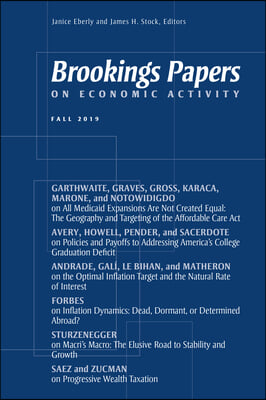市场对美联储资产负债表正常化计划的反应
IF 2.8
3区 经济学
Q1 ECONOMICS
引用次数: 1
摘要
摘要:本文运用弗朗西斯科·比安奇(Francesco Bianchi)和赛马(Sai Ma)共同开发的方法,对美联储宣布其资产负债表正常化计划后股市的反应进行了分析。结果表明,公告发布后,股市下跌,表明有关资产负债表正常化的声明缺乏灵活性,但对这些公告的许多重大反应可归因于推动股市的力量,而不是更广泛的经济。本文章由计算机程序翻译,如有差异,请以英文原文为准。
Market Reactions to the Federal Reserve's Balance Sheet Normalization Plans
ABSTRACT:This paper focuses on interpreting the stock market's reactions to Federal Reserve announcements about its balance sheet normalization plans, applying the methodology developed with Francesco Bianchi and Sai Ma. The results indicate that the stock market declines after announcements, suggesting perceived inflexibility in statements about balance sheet normalization, but many of the large reactions to these announcements can be ascribed to forces that move the stock market but not the broader economy.
求助全文
通过发布文献求助,成功后即可免费获取论文全文。
去求助
来源期刊

Brookings Papers on Economic Activity
ECONOMICS-
CiteScore
10.10
自引率
0.00%
发文量
12
期刊介绍:
The Brookings Papers on Economic Activity (BPEA) is a semi-annual academic conference and journal that pairs rigorous research with real-time policy analysis to address the most urgent economic challenges of the day. Working drafts of the papers are presented and discussed at conferences typically held twice each year, and the final versions of the papers and comments along with summaries of the general discussions are published in the journal several months later. The views expressed by the authors, discussants and conference participants in BPEA are strictly those of the authors, discussants and conference participants, and not of the Brookings Institution. As an independent think tank, the Brookings Institution does not take institutional positions on any issue.
 求助内容:
求助内容: 应助结果提醒方式:
应助结果提醒方式:


